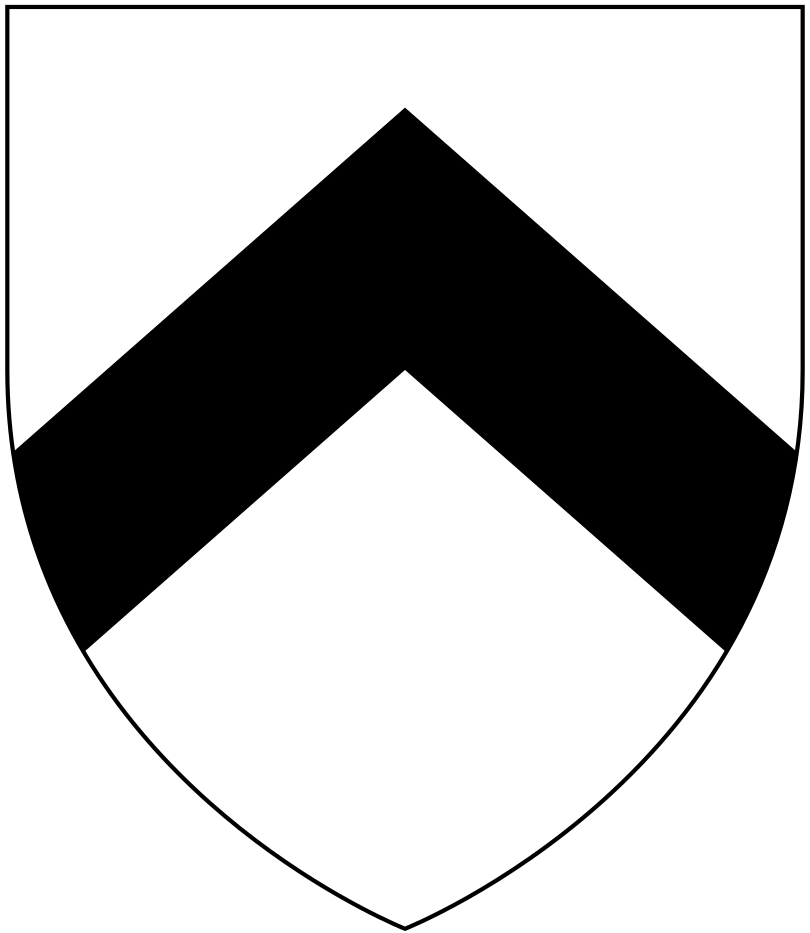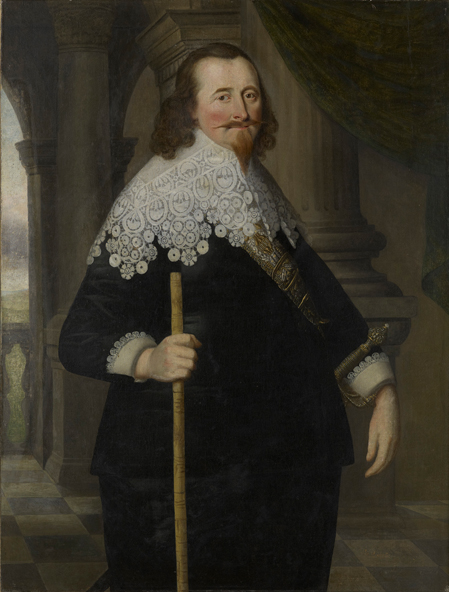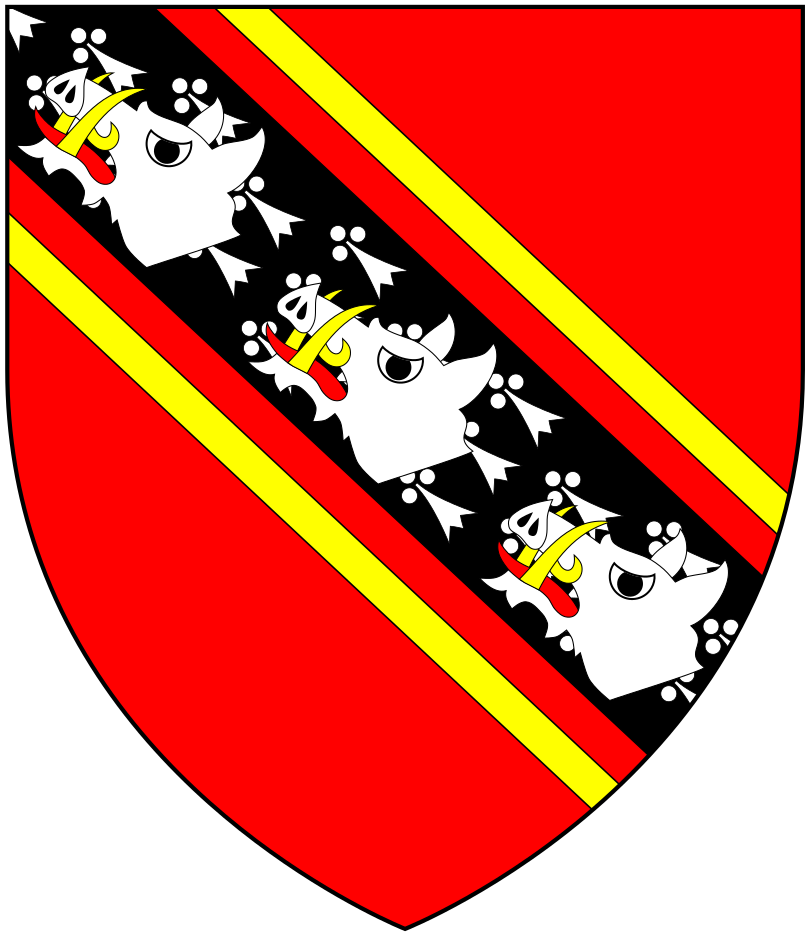|
Jonathan Trelawny (High Sheriff Of Cornwall)
Sir Jonathan Trelawny (17 December 1568 – 21 June 1604), of Pool in Menheniot, Cornwall, was an English Member of Parliament. Trelawny was the posthumous younger son of John Trelawny of Pool (who had been High Sheriff of the county); his elder brother died in infancy and he inherited the estate. He entered Parliament as member for Liskeard Liskeard ( ; kw, Lyskerrys) is a small ancient stannary and market town in south-east Cornwall, South West England. It is situated approximately 20 miles (32 km) west of Plymouth, west of the Devon border, and 12 miles (20 km) eas ..., representing that borough in three parliaments, and subsequently also represented Cornwall (UK Parliament constituency), Cornwall in the Parliaments of 1597 and 1604. On one occasion he was sent to the Tower of London for losing his temper during a parliamentary debate where he ''"dealt his opponent, Mr Ashe, a thundering box to his ear"'' and ''"flashed his sword"''. He was High Sheriff of ... [...More Info...] [...Related Items...] OR: [Wikipedia] [Google] [Baidu] |
Sir Jonathan Trelawny (1568–1604)
Sir Jonathan Trelawny, 3rd Baronet (24 March 1650 – 19 July 1721) was an English Bishop of Bristol, Bishop of Exeter and Bishop of Winchester. Trelawny is best known for his role in the events leading up to the Glorious Revolution which are sometimes believed to be referenced in the Cornish anthem "The Song of the Western Men". Life He was born at Trelawne in the parish of Pelynt, Cornwall, the eldest surviving son of Sir Jonathan Trelawny, 2nd Baronet and Mary Seymour, daughter of Sir Edward Seymour, 2nd Baronet. He was educated at Westminster School and then went to Christ Church, Oxford at the start of the Michaelmas term of 1668 where he distinguished himself as a scholar. A staunch royalist, he was ordained in 1673 and became a beneficed clergyman. He was appointed rector of South Hill on 4 October and of St. Ives on 12 December 1677, becoming Bishop of Bristol in 1685. He was one of the Seven Bishops tried for seditious libel under James II. Trelawny and the other bi ... [...More Info...] [...Related Items...] OR: [Wikipedia] [Google] [Baidu] |
Sir John Trelawny, 1st Baronet
Sir John Trelawny, 1st Baronet (24 April 1592 – 16 February 1664) was a Cornish baronet and soldier from Trelawne, Cornwall. He was High Sheriff of Cornwall. A Royalist MP, he fought for Charles I in the English Civil War. Origins John Trelawny was born in Hall, near Fowey in Cornwall on 24 April 1592, and baptised in Fowey on 7 May. He was the eldest son of Jonathan Trelawny and Elizabeth Killigrew. He studied at Merton College, Oxford where he matriculated 23 October 1607. He succeeded his father in 1604 to the Trelawne manor his father had bought from the crown in 1600. Parliament In 1628, Trelawny became involved in the dispute between Charles I and leading members of Parliament which eventually led to the English Civil War. The King was anxious to influence the election of MPs so as to secure a more pliable Parliament, and in Cornwall efforts on his behalf were being directed by one James Bagg, acting in concert with the Duke of Buckingham. Two of the King's most impl ... [...More Info...] [...Related Items...] OR: [Wikipedia] [Google] [Baidu] |
Anthony Rous
Anthony Rous (1605 – 1 May 1677) was an English politician who sat in the House of Commons at various times between 1653 and 1660. He was an officer in the Parliamentary army in the English Civil War. Rous was the son of Robert Rous and his wife Jane Pym, daughter of Alexander Pym and niece of John Pym. In 1653, Rous was elected Member of Parliament for Cornwall in the Barebones Parliament. He was re-elected MP for Cornwall in the First Protectorate Parliament and in the Second Protectorate Parliament. In April 1660, Rous was elected Member of Parliament for Helston Helston ( kw, Hellys) is a town and civil parish in Cornwall, England, United Kingdom. It is situated at the northern end of the Lizard Peninsula approximately east of Penzance and south-west of Falmouth.Ordnance Survey: Landranger map she ... for the Convention Parliament in a double return. He was seated in May 1660, but the election was declared void on 27 June and a by-election was held. Rous m ... [...More Info...] [...Related Items...] OR: [Wikipedia] [Google] [Baidu] |
John Arundell (born 1576)
John Arundell (1576 – December 1654), Esquire, of Trerice in Cornwall, later given the epithet "Jack for the King", was a member of an ancient Cornish gentry family, who as a Royalist during the Civil War served King Charles I as Governor of Pendennis Castle, Falmouth. In 1646 he retained the castle in a heroic manner during a five-month-long siege by Fairfax, during which his forces were reduced by hunger to eating their horses, and finally achieved an honourable surrender He served twice as MP for the prestigious county seat of Cornwall (1601 and 1621), and for his family's pocket boroughsDuffin & Hunneyball of Tregony (1628) and Mitchell (1597) and also for St Mawes (1624). His family "of Trerice" should not be confused with the contemporary ancient and even more prominent Cornish family of Arundell "of Lanherne", six miles north of Trerice, "The Great Arundells", with which no certain shared origin has been found, but which shared the same armorials, the Arundell swall ... [...More Info...] [...Related Items...] OR: [Wikipedia] [Google] [Baidu] |
Walter Raleigh
Sir Walter Raleigh (; – 29 October 1618) was an English statesman, soldier, writer and explorer. One of the most notable figures of the Elizabethan era, he played a leading part in English colonisation of North America, suppressed rebellion in Ireland, helped defend England against the Spanish Armada and held political positions under Elizabeth I. Raleigh was born to a Protestant family in Devon, the son of Walter Raleigh and Catherine Champernowne. He was the younger half-brother of Sir Humphrey Gilbert and a cousin of Sir Richard Grenville. Little is known of his early life, though in his late teens he spent some time in France taking part in the religious civil wars. In his 20s he took part in the suppression of rebellion in the colonisation of Ireland; he also participated in the siege of Smerwick. Later, he became a landlord of property in Ireland and mayor of Youghal in East Munster, where his house still stands in Myrtle Grove. He rose rapidly in the favour of Quee ... [...More Info...] [...Related Items...] OR: [Wikipedia] [Google] [Baidu] |
William Bevill
William is a masculine given name of Norman French origin.Hanks, Hardcastle and Hodges, ''Oxford Dictionary of First Names'', Oxford University Press, 2nd edition, , p. 276. It became very popular in the English language after the Norman conquest of England in 1066,All Things William"Meaning & Origin of the Name"/ref> and remained so throughout the Middle Ages and into the modern era. It is sometimes abbreviated "Wm." Shortened familiar versions in English include Will, Wills, Willy, Willie, Liam, Bill, and Billy. A common Irish form is Liam. Scottish diminutives include Wull, Willie or Wullie (as in Oor Wullie or the play ''Douglas''). Female forms are Willa, Willemina, Wilma and Wilhelmina. Etymology William is related to the German given name ''Wilhelm''. Both ultimately descend from Proto-Germanic ''*Wiljahelmaz'', with a direct cognate also in the Old Norse name ''Vilhjalmr'' and a West Germanic borrowing into Medieval Latin ''Willelmus''. The Proto-Germanic name is a ... [...More Info...] [...Related Items...] OR: [Wikipedia] [Google] [Baidu] |
William Killigrew (Chamberlain Of The Exchequer)
Sir William Killigrew (died 1622) of Hanworth, Middlesex, was a courtier to Queen Elizabeth I and to her successor King James I, whom he served as Groom of the Privy Chamber. He served as a member of parliament at various times between 1571 and 1614 and was Chamberlain of the Exchequer between 1605 and 1608. Several of his descendants were also royal courtiers and many were buried in Westminster Abbey. Origins Killigrew was the fifth son of John III Killigrew (died 1567) of Arwenack, Cornwall, the first Governor of Pendennis Castle, situated on land within the Arwenack estate, appointed by King Henry VIII. His mother was Elizabeth Trewinnard, 2nd daughter of James Trewennard of Trewennard, in the parish of St Erth, Cornwall. The monumental brass of John III Killigrew survives in St Budock's Church, near Arwenack. Career Under Queen Elizabeth I In 1571 he was elected Member of Parliament for Grantham in Lincolnshire and in 1572 he was elected MP for Helston in Cornwall. He becam ... [...More Info...] [...Related Items...] OR: [Wikipedia] [Google] [Baidu] |
Edward Trelawny (MP For Liskeard)
Edward Trelawny may refer to: * Edward John Trelawny Edward John Trelawny (13 November 179213 August 1881) was a British biographer, novelist and adventurer who is best known for his friendship with the Romantic poets Percy Bysshe Shelley and Lord Byron. Trelawny was born in England to a family ... (1792–1881), biographer, novelist and adventurer * Edward Trelawny (colonial administrator) (1699–1754), British governor of Jamaica, 1738–1752 {{hndis, Trelawny, Edward ... [...More Info...] [...Related Items...] OR: [Wikipedia] [Google] [Baidu] |
Henry Neville (died 1615)
Sir Henry Neville (baptised 20 May 1564 – 10 July 1615) was an English courtier, politician and diplomat, noted for his role as ambassador to France and his unsuccessful attempts to negotiate between James I of England and the Houses of Parliament. In 2005, Neville was put forward as a candidate for the authorship of Shakespeare's works. Family Neville was the elder son of Sir Henry Neville (died 1593) and his second wife, Elizabeth Gresham (died 6 November 1573), granddaughter of Sir Richard Gresham, Lord Mayor of London, and only daughter and heir of the latter's elder son, John Gresham (died 1560), by Frances Thwaytes, the daughter and coheir of Sir Henry Thwaytes of Lund, Yorkshire.. Neville's father had earlier married, between 1551 and 1555, Winifred Losse (died in or before 1561), daughter of a property speculator, Hugh Losse (died 1555) of Whitchurch, London, by whom he had no children. After the death of his second wife, Neville's father married thirdly, a ... [...More Info...] [...Related Items...] OR: [Wikipedia] [Google] [Baidu] |
Edward Denny (soldier)
Sir Edward Denny (1547 – 12 February 1600), Knight Banneret, of Bishop's Stortford in Hertfordshire, was a soldier, privateer and adventurer during the reign of Queen Elizabeth I. Origins He was born in Cheshunt, Hertfordshire in 1547, the second surviving son of Sir Anthony Denny, a Privy Councillor to King Henry VIII and one of the Guardians of his young son and successor King Edward VI. His nephew was Edward Denny, 1st Earl of Norwich (1569-1637), who died without male issue and was buried at Waltham Abbey in Essex. Career Orphaned in childhood, he inherited lands in Hertfordshire. After some minor appointments at court, in 1573 he went to Ulster on a military expedition led by Walter Devereux, 1st Earl of Essex. Denny then took up privateering, capturing a Spanish ship in 1577 and a Flemish one in 1578. The same year saw him join a colonizing expedition led by Sir Humphrey Gilbert and Walter Raleigh; however, their ships were forced to turn home due to bad weather. Irelan ... [...More Info...] [...Related Items...] OR: [Wikipedia] [Google] [Baidu] |
Peter Edgcumbe
Peter (or Piers) Edgcumbe (1536 – 4 January 1608) of Mount Edgcumbe and of Cotehele in the parish of Calstock, both in Cornwall, was an English Member of Parliament. Origins Piers was a traditional first name in his family. He was the eldest son of Sir Richard Edgcumbe (1499–1562), son of Sir Piers Edgcumbe (d.1539) Vivian, Lt.Col. J.L., (Ed.) The Visitations of Cornwall: Comprising the Heralds' Visitations of 1530, 1573 & 1620; with additions by J.L. Vivian, Exeter, 1887, p.14/ref> of West Stonehouse and Cotehele, Cornwall. Career He was elected a Member of Parliament for Totnes (UK Parliament constituency), Totnes in Devon in 1555, appointed Sheriff of Devon for 1565, Sheriff of Cornwall in 1569 and Custos Rotulorum of Cornwall before 1573–1597. He was also a Member of Parliament for Cornwall in the periods 11 January 1563 – 2 January 1567 and 8 May 1572 – 1581, Devon in 1571, Liskeard in 1584–1585 and was then re-elected for Cornwall in 1586, 1589 and 1593. He ... [...More Info...] [...Related Items...] OR: [Wikipedia] [Google] [Baidu] |
George Wray
George may refer to: People * George (given name) * George (surname) * George (singer), American-Canadian singer George Nozuka, known by the mononym George * George Washington, First President of the United States * George W. Bush, 43rd President of the United States * George H. W. Bush, 41st President of the United States * George V, King of Great Britain, Ireland, the British Dominions and Emperor of India from 1910-1936 * George VI, King of Great Britain, Ireland, the British Dominions and Emperor of India from 1936-1952 * Prince George of Wales * George Papagheorghe also known as Jorge / GEØRGE * George, stage name of Giorgio Moroder * George Harrison, an English musician and singer-songwriter Places South Africa * George, Western Cape ** George Airport United States * George, Iowa * George, Missouri * George, Washington * George County, Mississippi * George Air Force Base, a former U.S. Air Force base located in California Characters * George (Peppa Pig), a 2-year-old pig ... [...More Info...] [...Related Items...] OR: [Wikipedia] [Google] [Baidu] |
.jpg)




